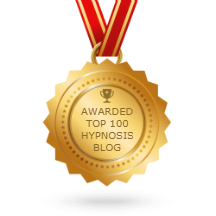By Herve Boisde
It is pretty well accepted that IQ isn't the best predictor for success or happiness in life. Very often it's people with average IQ that seem to have the set of skills that enable them to go far in life, develop fulfilling relationships, succeed in their careers and be happier overall. Ever since the release of Dr. Daniel Coleman's groundbreaking book Emotional Intelligence: Why It Can Matter More Than IQ, educators, parents and counselors have stressed teaching emotional intelligence to children at an early age to help them to be more well equipped for the challenges and opportunities that lay ahead. But experts say that your EQ (emotional intelligence quotient) can be boosted at any age.
Emotional intelligence consists of four attributes:
- Self-awareness – You recognize your own emotions and how they affect your thoughts and behavior, know your strengths and weaknesses, and have self-confidence.
- Self-management – You’re able to control impulsive feelings and behaviors, manage your emotions in healthy ways, take initiative, follow through on commitments, and adapt to changing circumstances.
- Social awareness – You can understand the emotions, needs, and concerns of other people, pick up on emotional cues, feel comfortable socially, and recognize the power dynamics in a group or organization.
- Relationship management – You know how to develop and maintain good relationships, communicate clearly, inspire and influence others, work well in a team, and manage conflict.
Emotional intelligence is important because it affects so many aspects of a person's life, including the quality of work at their job, physical as well as mental health, and personal relationships. It's a concept that is so well accepted that, in fact, when it comes to gauging job candidates, many companies now view emotional intelligence as being as important as technical ability and require EQ testing before hiring.
Becoming emotional intelligent is the opposite of reacting automatically or reflexively to stresses or challenges. When people can manage the "fight or flight" response then they are actually using a more intelligent portion of the brain, rather than the primitive limbic brain that humans inherited from earlier species. It's a misconception that emotions and feelings are a hindrance to making informed decisions. Studies on people who have lost the primary emotional structure in the brain, the amygdala, show that without the help of emotions to give importance to one choice over another choice, humans are completely unable to make even the most simple decisions, such as what color shirt to wear. Distracting emotions, such as being angry or bitter towards your coworkers can, of course, affect your decisions in a negative way. Emotions need to be understood to be used effectively.
Emotional intelligence (EQ) is built by reducing stress, remaining focused, and staying connected to yourself and others. You can do this by learning key skills. The first two skills are essential for controlling and managing overwhelming stress and the last three skills greatly improve communication. Each skill builds on the lessons learned in practicing the earlier skills and include:
- The ability to quickly reduce stress in the moment in a variety of settings
- The ability to recognize your emotions and keep them from overwhelming you
- The ability to connect emotionally with others by using nonverbal communication
- The ability to use humor and play to stay connected in challenging situations
- The ability to resolve conflicts positively and with confidence
Mindfulness is considered important to many of these skills. Activities that increase mindfulness, such as meditation, creative projects, or anything that allows you to be more present in the moment, create self-awareness and therefore, mindfulness. Meditation is also useful for it's ability to help manage stress. Being mindful means having more awareness in general, so that also includes awareness of your emotions and the emotions of the people around you. Hypnosis can help with suppressed emotions due to trauma, unconscious habits, or out of control emotions related to phobias.
These skills can be learned in other ways as well, for example, seminars on conflict resolution, drama classes for non-verbal communication, and going to comedy shows to keep your sense of humor primed. The important thing is to stay focused on developing the four attributes of EQ by exploring the abilities listed in the key skills above. With regular practice, emotional intelligence will become a habit hardwired into your brain, helping you to create a more satisfying life.



